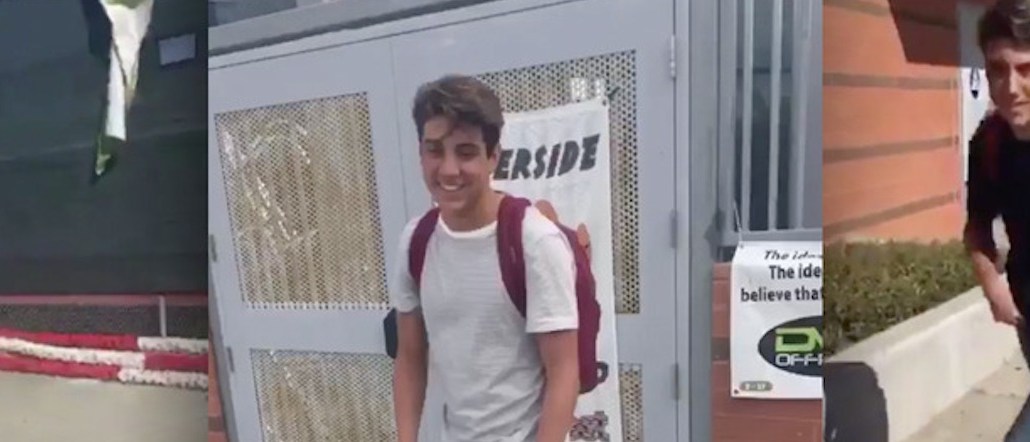Octopuses are in, cats are out: How viral editors find the Internet’s next big obsession

What works now on the Internet probably won’t resonate in a year or two. That’s life in the fast lane of viral publishing.
To survive and thrive, a new class of viral editors has emerged, steeped in data and easily at home in the dingy corners of 4chan, ready to package together viral videos or come up with catchy headline conventions some would consider clickbait. But now those editors are changing their games, leaning more toward substantive issues versus disposable memes, while staying focused on having their fingers on the pulse of the Web.
Digiday talked to four writers and editors deep in the viral Internet trenches to get a pulse of what’s resonating with the Internet, and what’s no longer not.
Miles Klee, editor, The Daily Dot’s LOL section
Klee has worked at the Daily Dot for three years in various editorial roles before being promoted to an editor last April for the site’s LOL vertical. Every morning, he checks Reddit, Imgur, YouTube, Facebook and Twitter accounts to see what the Internet is talking about before pitching stories to Daily Dot writers.
“A lot of times the stuff that transmits [within social networks] is probably going to work on a website,” he said.
Finding that so-called weird stuff has changed LOL’s focus, shifting the focus away from viral videos and “babies doing weird things” to politics, memes and local news stories going national. “We’re in the place where memes become more fluid. They’re starting on Tumblr then moving to Twitter and Facebook,” he said, pointing toward the Internet’s favorite conspiracy theory that Republican presidential hopeful Ted Cruz could be the Zodiac killer.
Klee added that hiring writers that “bring expertise to the area” is better than the tools, like Dataminr or CrowdTangle, since they’re immersed in Internet culture. “You got to have writers that are living and breathing this stuff,” he told Digiday. “If you want the weird stuff, you have to let them go off on their own.”
As for animal videos, Klee said the Internet isn’t attracted to cute cat videos anymore. “Got to go with shark, octopuses or eagles doing weird things,” he laughed.
Rebecca Eisenberg, senior editor, Upworthy
Facing a sharp decline in traffic, Upworthy redirected its mission of repackaging clickbait to creating original video and stories. While the direction has changed, its DNA of stuffing the Internet with feel-good and positive stories hasn’t.
Eisenberg joined Upworthy in 2012, just three months into its existence. She’s developed a pattern of checking NewsWhip, Feedly, Reddit, Getty Images and installing an If This Then That recipe for trending Reddit stories to assign writers.
One of the biggest changes she’s seen is the Internet becoming more receptive to stories with “feminism” in the title. Just a few years ago, those pieces would “die a horrible death,” she joked, but not anymore pointing to the growth of female-aimed media. Stories revolving around systemic issues, social impact stories and “anytime we can put into words a complicated feeling” that readers can’t personally explain are also shared well.
As for those eye-rolling headlines associated with Upworthy, such as “And You Won’t Believe What Happened Next,” the publisher won’t ever use those again, she promised.
“It was easy for everyone to copy, and the Internet became saturated,” she said. “When it stopped working, we worked on different ways to frame a post.”
Maia McCann, director of content, LittleThings
To find content that resonates, McCann begins work at 5 a.m., scanning her social media feeds and perusing NewsWhip to find stories. LittleThings’s team of 15 writers churns out 60 posts each day, with the focus area constantly shifting.
Within the past four years of working in the trenches of the viral Internet, nearly two of those at LittleThings, which describes itself as the “leading lifestyle destination for inspiring, uplifting and engaging stories,” McCann has noticed the Internet’s appetite for more meaningful posts.
“Inspiring content that brings people joy does better than shock,” she said, adding that animal-themed posts, like a rabbit eating a strawberry, are flopping. “The stuff that’s cute for simply being cute gets less traction.”
One way LittleThings has found success is “riffing” on the popularity of food-creation videos. Rather than shooting a video with someone’s hands assembling a meal, the site recorded a grandmother making gnocchi and explaining the food’s history and directions. The video raked in 3.5 million views and 57,000 shares.
“The trends have evolved,” she admitted. “We as publishers have the power to beat people over the head with the same thing, so we encourage writers to cover different things.”
Meghan McCormick, freelance writer
For the past five years, McCormick has been a freelance writer for BuzzFeed and Death and Taxes before moving to Distractify, a Facebook-friendly publication that aped Upworthy’s potion of feel-good and uplifting stories to rake in traffic.
She recently left the company and is again freelancing, pitching stories she finds on her “primary sources,” i.e., Facebook, Twitter and Reddit, as well as finding “little gems” on local television and newspaper websites.
“Readers are more aware of formulas,” said McCormick. “They’re far more cautious in clicking a link, so it has to actually be a quality piece of content to make it worth their time.”
The Internet’s hunger for newsier and in-depth stories, especially younger readers digging into identity politics, is a trend she’s noticed. Also, with the mind-boggling rise of reality host-turned-possibly-fascist Republican presidential candidate Donald Trump, the upcoming election is forcing some people to find a reprieve from it.
“I noticed that people are eager to have easily digestible content that makes them feel safer about the election,” she said. “People are trying to find a way to cope with what’s going on,” she said.
More in Media

Publishers revamp their newsletter offerings to engage audiences amid threat of AI and declining referral traffic
Publishers like Axios, Eater, the Guardian, theSkimm and Snopes are either growing or revamping their newsletter offerings to engage audiences as a wave of generative AI advancements increases the need for original content and referral traffic declines push publishers to find alternative ways to reach readers.

The Guardian US is starting its pursuit of political ad dollars
The Guardian US is entering the race for political ad dollars.

How much is Possible’s future in Michael Kassan’s hands?
Some people in the know at Possible said they see the conference taking a bite out of Cannes’ attendance, most acutely by U.S.-based marketers who could save money by staying on this side of the Atlantic.





